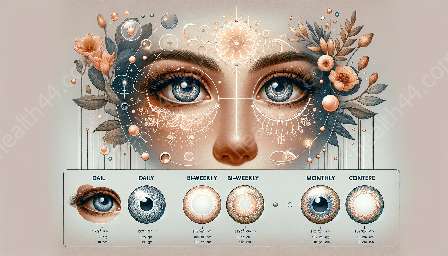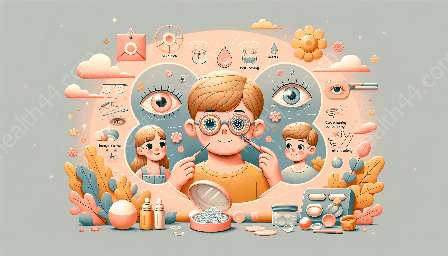Wearing contact lenses comes with many conveniences, but it also requires careful attention to safety, especially when it comes to sleeping with them. In this comprehensive guide, we'll explore the risks and potential consequences of sleeping with contact lenses, the associated contact lens-related infections, and best practices for maintaining eye health.
Risks of Sleeping with Contact Lenses
Sleeping in contact lenses can pose several risks to eye health. One of the most significant risks is the reduction of oxygen supply to the cornea. When the eyes are closed during sleep, oxygen is already in limited supply due to the eyelids being shut. Adding contact lenses further diminishes the oxygen flow to the cornea, leading to potential long-term damage and discomfort.
Another risk of sleeping with contact lenses is the increased likelihood of eye irritation and infection. Throughout the day, our eyes are exposed to various environmental pollutants, allergens, and bacteria, which can adhere to the surface of the contact lenses. When lenses are worn during sleep, these contaminants are trapped against the eye for extended periods, increasing the risk of infection.
Contact Lens-Related Infections
A number of serious infections are associated with wearing contact lenses, especially during sleep. Some common contact lens-related infections include:
- Bacterial Conjunctivitis: This infection, commonly known as pink eye, can cause redness, discharge, and discomfort in the eyes.
- Corneal Ulcers: These open sores on the cornea are usually caused by bacterial, viral, or fungal infections and can lead to vision loss if not treated promptly.
- Acanthamoeba Keratitis: A rare but serious infection caused by a waterborne organism that can result in severe pain, vision loss, and the need for a corneal transplant.
- Keratitis: This condition involves inflammation of the cornea and can be caused by various pathogens, leading to pain, redness, and vision disturbances.
Preventing Contact Lens-Related Infections
To minimize the risk of contact lens-related infections, especially while sleeping, it's essential to follow best practices for contact lens wear and care:
- Remove Contacts Before Bed: Always remove your contact lenses before sleeping, as this allows the eyes to receive adequate oxygen and reduces the risk of infections.
- Follow Proper Cleaning and Storage: Clean and disinfect your contact lenses as recommended by your eye care professional, and store them in a clean contact lens case with fresh solution.
- Avoid Water Exposure: Never wear contact lenses while swimming or showering, as water can introduce harmful microorganisms to the eyes and lead to infections.
- Replace Lenses as Directed: Adhere to your eye care professional's prescribed replacement schedule for contact lenses to ensure optimal eye health.
- Regular Eye Exams: Schedule regular eye exams with an optometrist or ophthalmologist to monitor your eye health and address any concerns related to contact lenses.
Conclusion
While wearing contact lenses provides vision correction and convenience, it's crucial to prioritize eye safety and health. Sleeping with contact lenses increases the risk of contact lens-related infections and other complications, so it's best to remove them before bedtime. By following proper care and hygiene practices, you can ensure the longevity of your eye health and enjoy the benefits of contact lens wear without unnecessary risks.





















